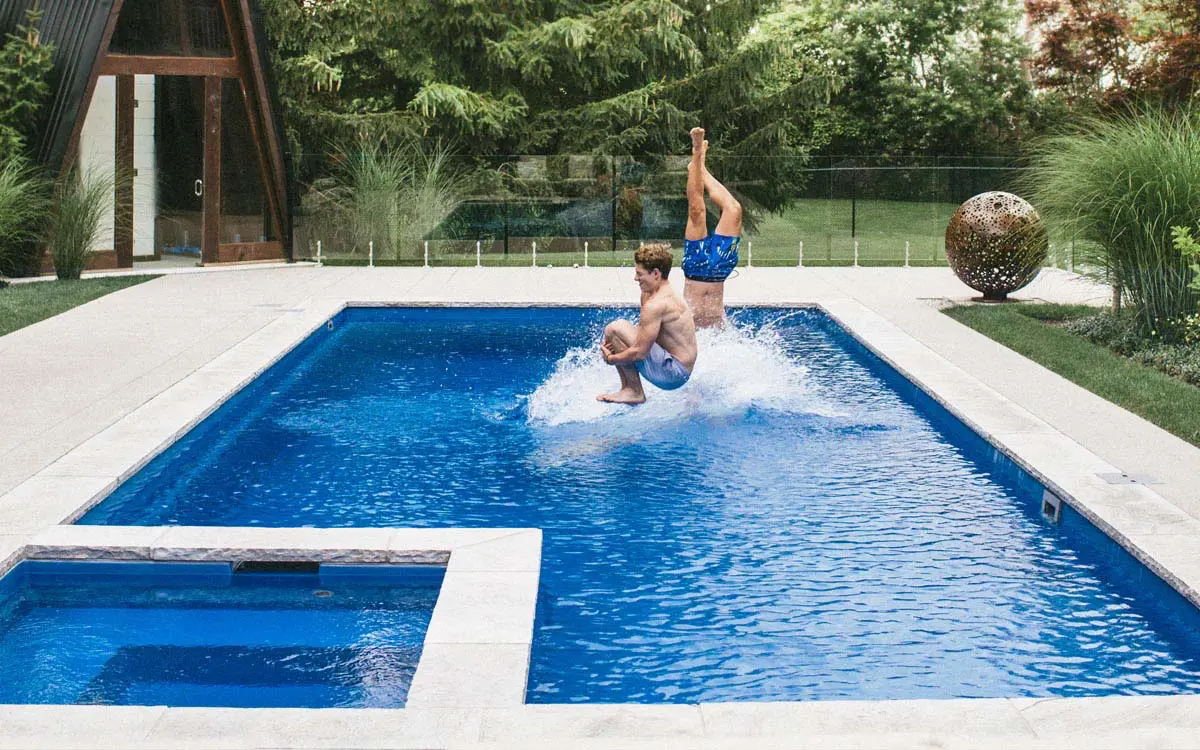
Salt Water Chlorinator: Perfectly Suited for Fiberglass Pools
Introduction
Have you ever wondered why more pool owners are switching to salt water chlorinators? It’s not just a passing trend—over 75% of new in-ground pools now incorporate salt water systems due to their long-term benefits.
A salt water chlorinator can transform your swimming experience, offering softer, cleaner water with less hassle. Imagine diving into a pool where the water feels silky smooth, free from harsh chemical odors and irritation.
Switching to a salt water chlorinator is like upgrading from tap water to a luxury spa—gentler, cleaner, and more enjoyable. However, many homeowners hesitate due to common misconceptions, such as the belief that salt water pools are as salty as the ocean. In reality, they contain only a fraction of the salt content, making them far more comfortable and refreshing.
This article explores why a salt water chlorinator is the perfect choice for fiberglass pools, highlighting its benefits, cost savings, and ease of maintenance. If you’re looking for a pool that’s both luxurious and low-maintenance, read on to discover why this combination is a game-changer.
What is a Salt Water Chlorinator?
A salt water chlorinator, also known as a salt chlorine generator, is an advanced pool sanitation system that converts salt into chlorine. Unlike traditional chlorine pools, which require frequent manual additions of chlorine, a pool salt chlorinator generates chlorine naturally, ensuring a consistent and balanced level of sanitation.
How It Works
- Salt is added to the pool water at a low concentration (around 3,000 ppm, much lower than ocean water).
- The salt chlorine generator uses electrolysis to break down the salt, producing chlorine.
- This chlorine sanitizes the water, keeping it clean and clear.
- Once the chlorine has done its job, it converts back to salt, creating a continuous cycle with minimal maintenance.
This process ensures that your pool remains free from bacteria and algae while reducing the need for manual chemical adjustments.
Benefits of Salt Water Chlorinators
Healthier, Softer Water
- Reduces eye and skin irritation, making swimming more enjoyable.
- Eliminates strong chlorine odors, providing a fresh and clean experience.
Reduced Chemical Handling
- No need to store or manually add chlorine tablets or liquid chlorine.
- Less risk of chemical imbalances, making pool maintenance easier.
Cost Efficiency Over Time
- Lower long-term chemical costs since chlorine is generated continuously.
- Reduced need for shock treatments and algaecides, saving money and effort.
Why Fiberglass Pools Are Ideal for Salt Water
Durability and Resistance to Salt
Fiberglass pools are non-porous, which means they don’t absorb water or chemicals like other pool materials. This makes them highly resistant to salt water damage. Unlike concrete pools, which can erode over time due to salt exposure, fiberglass pools maintain their smooth surface without requiring resurfacing.
Smooth Surface Benefits
- Less algae buildup compared to rougher pool surfaces, reducing maintenance needs.
- Easier to clean and maintain, requiring less frequent brushing and vacuuming.
Comparison with Concrete Pools
Concrete’s Susceptibility to Salt Damage
- Salt water can accelerate surface deterioration, leading to cracks and rough patches.
- Requires frequent resurfacing and sealing, increasing long-term maintenance costs.
Higher Maintenance Needs
- Rough surfaces encourage algae growth, necessitating more cleaning and chemical treatments.
- More frequent chemical balancing is required to maintain water quality.
Comparison with Vinyl Pools
Metal Component Concerns
- Salt water can lead to corrosion of metal components in vinyl pools, such as ladders and handrails.
- Requires careful selection of corrosion-resistant materials to prevent damage.
Liner Vulnerability
- Vinyl liners can degrade over time when exposed to salt water, leading to potential leaks.
- Higher risk of punctures or tears, which can be costly to repair or replace.
Long-Term Cost Savings
Lower Chemical Expenses
Because a salt water chlorinator continuously generates chlorine, homeowners spend significantly less on purchasing chlorine products.
Reduced Maintenance Costs
- Less need for professional cleanings since salt water systems naturally inhibit algae growth.
- Fewer repairs due to the durability of fiberglass pools, leading to long-term financial savings.
Impact on Pool Water Quality
Clearer, More Inviting Water
- Consistent chlorine levels prevent cloudiness and ensure a sparkling clean pool.
- Fewer fluctuations in water chemistry reduce the need for frequent adjustments.
Less Irritation for Swimmers
- No harsh chlorine smell, making swimming more pleasant.
- Gentler on skin, eyes, and swimsuits, reducing wear and tear on swimwear.
Environmental Benefits
Reduced Chemical Usage
- Less reliance on commercial chlorine products minimizes chemical waste and pollution.
Safer for the Ecosystem
- Lower environmental impact compared to traditional chlorine pools, making it a more sustainable choice.
Ease of Maintenance
Fewer Algae Issues
- Salt water naturally inhibits algae growth, meaning fewer chemical treatments are needed.
Lower Ongoing Cleaning Requirements
- Less scrubbing and vacuuming required, saving time and effort.
- Reduced reliance on algaecides and shock treatments, making maintenance simpler.
Salt Concentration Misconceptions
Not as Salty as the Ocean
Many believe salt water pools have high salt levels, but in reality:
- Ocean water contains around 35,000 ppm salt.
- A salt water pool chlorinator maintains levels at approximately 3,000 ppm—a fraction of ocean salinity.
Feels Like Fresh Water
- The salt concentration is mild and barely noticeable.
- The water feels smooth and refreshing rather than harsh or overly salty.
Conclusion
A salt water chlorinator paired with a fiberglass pool creates the ultimate low-maintenance, high-quality swimming experience. Homeowners enjoy:
- Softer, healthier water that’s gentle on skin and eyes.
- Lower chemical costs and reduced maintenance efforts.
- Long-term durability, as fiberglass pools resist salt-related damage.
If you’re looking for a pool that’s easy to maintain and gentle on your skin, a pool salt chlorinator is the perfect choice.
Have questions? Contact us for expert advice!